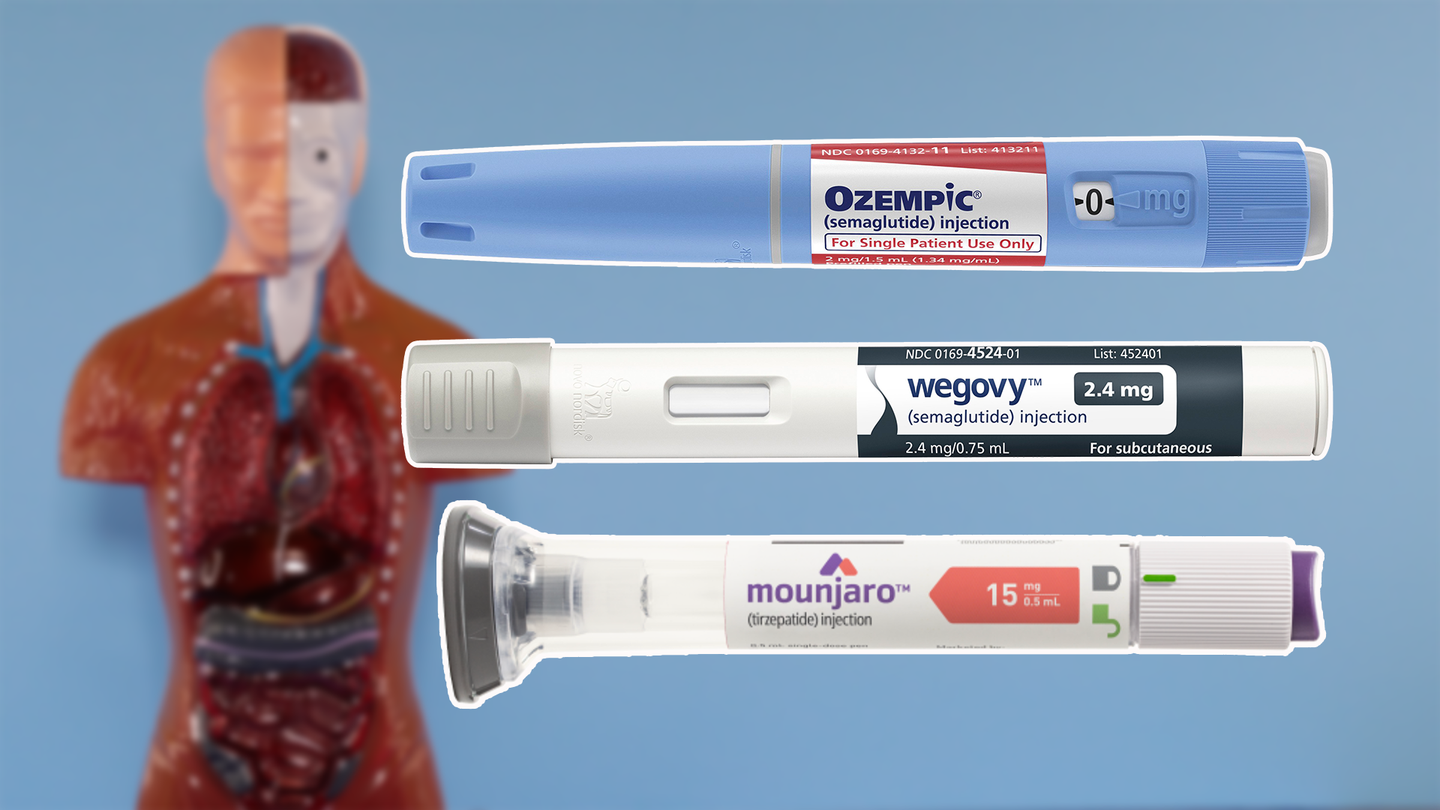Groundbreaking weight-loss drug could be stronger than Ozempic and as powerful as surgery
Research outpaced Ozempic and Mounjaro in efficacy, and coming close to matching the transformative effects of bariatric surgery.

[June 28, 2023: Staff Writer, The Brighter Side of News]
The potential of this groundbreaking treatment has the healthcare world abuzz. (CREDIT: Creative Commons)
A stunning revelation recently rocked the medical community: retatrutide, a new hormone-based injectable drug from pharmaceutical giant Eli Lilly, has surpassed expectations in clinical trials, outpacing the likes of Ozempic and Mounjaro in efficacy, and coming close to matching the transformative effects of bariatric surgery.
The potential of this groundbreaking treatment has the healthcare world abuzz, and its implications could change the landscape of both obesity and Type 2 diabetes management.
Details of two separate mid-stage clinical trials of retatrutide were released in esteemed scientific journals, the New England Journal of Medicine (NEJM) and The Lancet. Researchers and healthcare professionals around the world avidly digested the information, marveling at the significant findings that have emerged from these trials.
At the American Diabetes Association conference in San Diego, the gathered medical professionals - many of them leaders in their fields - reacted with astonishment to the clinical outcomes of retatrutide. Hundreds of trial participants, suffering from obesity and diabetes, demonstrated rapid weight loss and substantial improvements in blood sugar, cholesterol, and blood pressure levels under the influence of the investigational drug.
Related Stories
Dr. Ania Jastreboff, director of the Yale Obesity Research Center and co-author of the NEJM paper, was one of the many taken aback by the drug's performance. "We have not seen results like this before," she stated, her surprise echoing through the conference hall.
As news of retatrutide's results disseminated throughout the conference, a wave of consensus swept over the attendees. Many began to consider the drug as a potential game-changer in both weight loss and Type 2 diabetes management. The global medical community, represented at the conference, reacted with palpable excitement - an ovation of claps and gasps met the announcement of the trial results.
Dr. Carel Le Roux from University College Dublin, an obesity researcher not involved in the studies, succinctly encapsulated the medical community's sentiment during a press conference, saying, "This raises the bar. This is way beyond my wildest dreams."
Retatrutide bears similarities to Ozempic, Wegovy, and Mounjaro; it is a once-weekly injection of hormones that regulate hunger, thereby promoting feelings of satiety and decreasing appetite. But, retatrutide surpasses these predecessors in one critical aspect.
Bodyweight decreased dose dependently with retatrutide at 36 weeks by 3·19% (SE 0·61) for the 0·5 mg group, 7·92% (1·28) for the 4 mg escalation group, 10·37% (1·56) for the 4 mg group, 16·81% (1·59) for the 8 mg slow escalation group, 16·34% (1·65) for the 8 mg fast escalation group, and 16·94% (1·30) for the 12 mg escalation group, versus 3·00% (0·86) with placebo and 2·02% (0·72) with 1·5 mg dulaglutide. (CREDIT: The Lancet)
While Ozempic and Wegovy only mimic one hunger-regulating hormone, GLP-1, and Mounjaro two hormones, GLP-1 and GIP, retatrutide is a single molecule that mimics three different hunger-regulating hormones: GLP-1, GIP, and glucagon. This tripartite hormonal action, colloquially referred to as the "triple G" effect by scientists at the conference, seems to exert a more potent effect on a person's appetite and food satisfaction.
Dr. Jastreboff described the patients' experiences as a newfound "freedom," liberated from the arduous task of obsessively controlling their diet for the remainder of their lives.
In the trial published in the NEJM, patients with obesity received the highest weekly dose of retatrutide (12 mg) and lost an average of 58 pounds over 11 months. Significantly, their weight continued to decrease even after the trial ended. This suggests that longer and larger trials, yet to be completed, may reveal even more impressive weight loss outcomes. Remarkably, every participant on the highest dose of retatrutide lost at least 5% of their body weight, with a quarter of those losing 30% or more.
Efficacy was analysed in all randomly assigned, except inadvertently enrolled, participants, and safety was assessed in all participants who received at least one dose of study treatment. (CREDIT: The Lancet)
In a related study on retatrutide's effects on Type 2 diabetes patients, published in The Lancet, patients lost around 17% of their body weight over nine months. This is a groundbreaking achievement as it's generally more challenging for individuals with Type 2 diabetes to lose weight compared to those suffering solely from obesity.
Side effects observed with retatrutide mirrored those seen with Ozempic and Mounjaro, including nausea, diarrhea, constipation, and vomiting.
Lead Lancet study author Dr. Julio Rosenstock from the University of Texas Southwestern Medical Center was impressed. He declared, "This is a real wow. Not a single drug has achieved 17% — and you ain't seen nothing yet."
Schematic Depiction of the Pleiotropic Benefits of Dual Glucose-Dependent Insulinotropic Polypeptide (GIP)/Glucagon-Like Peptide-1 (GLP-1) Receptor Agonist Therapy in Type 2 Diabetes Mellitus. (CREDIT: Trends in Endocrine & Metabolism)
His trial, much like Dr. Jastreboff's, ended while patients were still shedding pounds. Given more time, Rosenstock anticipates many of these patients with diabetes would achieve a 20% weight loss with this medication. Crucially, around a third of the patients with Type 2 diabetes reverted to normal blood sugar levels while on the drug.
Despite the promise retatrutide holds, its commercial availability is several years away. Larger and longer phase 3 clinical trials are needed before the U.S. Food and Drug Administration can evaluate the drug for public use. Experts predict this process will last until at least the end of 2025. Yet, the medical community waits with bated breath as retatrutide has the potential to revolutionize the approach to obesity and diabetes treatment.
For more science and technology stories check out our New Innovations section at The Brighter Side of News.
Note: Materials provided above by The Brighter Side of News. Content may be edited for style and length.
Like these kind of feel good stories? Get the Brighter Side of News' newsletter.



